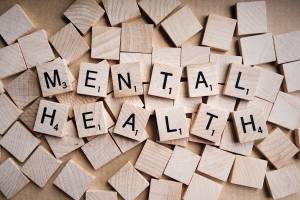
Help for depression and anxiety
Infinity Counseling specializes in helping adults overcome anxiety, depression, trauma, and more through personalized therapy sessions.
At Infinity Counseling in Brunswick, Ohio, we understand that maintaining good mental health is essential for overall well-being. Our practice specializes in adult mental health disorders, providing evidence-based therapy designed to help you overcome challenges and achieve lasting growth. Whether you’re struggling with anxiety, depression, or life transitions, our licensed therapists are dedicated to guiding you on your journey toward emotional balance and resilience.
Our therapeutic approach focuses on creating a safe and supportive environment where you can explore thoughts, emotions, and behaviors without judgment. We utilize proven methods such as cognitive-behavioral therapy (CBT), mindfulness-based strategies, and trauma-informed care to help you address core issues and develop effective coping skills. Each treatment plan is personalized to meet your unique needs and goals.
Infinity Counseling believes that healing is a collaborative process. We empower our clients to take control of their mental health by building self-awareness, improving relationships, and learning practical tools to manage stress and emotional challenges. Our goal is not just symptom relief—but helping you thrive in all aspects of your life.
Conveniently located in Brunswick, Ohio, Infinity Counseling offers flexible appointment options both in-person and online to fit your schedule. If you’re ready to take the next step toward a more fulfilling life, our compassionate therapists are here to support you every step of the way.
Frequently Asked Questions
What types of mental health conditions do you treat?
We specialize in treating adult mental health disorders such as ADHD, anxiety, depression, trauma, stress, life transitions, and mood disorders.
Do you offer telehealth therapy sessions?
Yes, Infinity Counseling provides both in-person and secure online therapy sessions for your convenience.
How long does therapy usually take?
Therapy duration varies based on individual needs and goals. Some clients find progress in a few months, while others benefit from ongoing support.
Do you accept insurance?
We accept most major insurance plans and also offer private pay options. Please contact our office or website for specific details.
How do I schedule an appointment?
You can call our Brunswick, Ohio office to schedule your first session.

